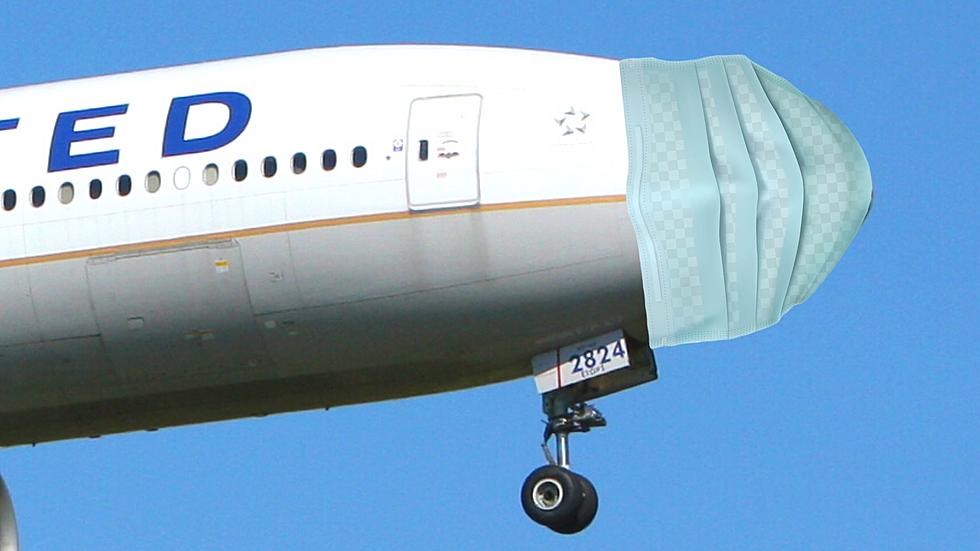
How Soon Should Concerts Return, and Will They Ever Be the Same?
Is live music going to return as normal later this year – or are fans and the industry in the middle of a historic COVID-19-based shift?
Encouraging headlines promise "Concerts to Heat Up This Summer as Coronavirus Fades." But health officials and economic policy experts aren't so sure. Neither are promoters: AEG cancellations first stretched from April into June, and now into July.
Government agencies are using new infection rates, testing capacity and total number of available hospital beds as measuring sticks for restarting the global economy. Certain benchmarks will have to be met before halting measures designed to fight against a highly contagious new virus. Senior health experts and many local officials, meanwhile, are strongly warning against moving too quickly for fear that COVID-19 could begin rapidly spreading again.
Dr. Anthony Fauci said the process of getting back to work will unfold in stages. There won't be any dramatic "light switch" moment, America's top infectious-diseases specialist warns. Instead, he said some commercial segments could begin a "rolling reentry" as early as next month in parts of the country – provided new patients who'd inevitably be infected could be quickly identified and isolated.
Among the last in line in that reentry process, if other expert forecasts are accurate, would be concerts, music festivals and cruise-based shows.
"It seems unlikely that we'll move instantly back to business as usual. We'll probably be avoiding large crowds for a while," said former Federal Reserve chairman Janet Yellen, now with the Brookings Institution's economics think tank. "In the first stage, people will go back to the factory or the office. Then I suspect there'll be a lot of business for barbershops and beauty salons once they reopen, and for retail that doesn’t involve large numbers of people in a crowded space. Only when people feel safer – and the government relaxes guidance – will restaurants, movie theaters, concerts and sporting events resume."
As this prolonged stand still continues, the concern is whether the music business will ever be the same again.
A BANNER YEAR HALTED
Concert revenues were once headed for new heights. Elton John, the Rolling Stones, Billy Joel and Guns N' Roses bolstered a 2020 slate predicted to generate $12 billion in ticket sales worldwide, according to Pollstar. Then everything came crashing to a quick stop when governmental stay-home orders dictated a string of postponements and cancellations.
Since then, millions have been infected and thousands have died while testing struggles to keep pace. What's more worrisome is that a proven COVID-19 vaccination isn't in sight. Questions remain about the safety of concerts, cruise-based shows, festivals and outdoor general-admission dates, which either take place in overstuffed, confined spaces or find fans crowded against one another in open fields. That's to say nothing of mosh pits.
"Larger gatherings — conferences, concerts, sporting events — when people say they're going to reschedule this conference or graduation event for October 2020, I have no idea how they think that's a plausible possibility," Zeke Emanuel, vice provost for global initiatives at the University of Pennsylvania, told The New York Times Magazine. "I think those things will be the last to return. Realistically, we're talking fall 2021, at the earliest."
Whatever the timeline, it remains unclear whether the Quarantine Generation would want any part of it – at least at first. In one recent poll, a majority of fans said they'd hold off on buying tickets for a period ranging from "a few months" to "possibly never" after live concerts returned. In truth, attitudes toward previously common-place social behaviors may be changed forever after months of distancing.
HOW IT MIGHT WORK
The music industry today stands to lose nearly $9 billion if concert stages remain dark for the rest of the year, Pollstar reports. Structural changes may need to be made, and that could lengthen the wait for shows to return.
Live music venues might require a temperature check with your cover charge or proof of immunity. Measures like those would allow many parts of the economy to spring back to life, though the degree and length of immunity for those who've contracted this novel coronavirus is still unclear.
Streaming concerts could remain the new normal, while concertgoers are left in a kind of musical purgatory: Many bought tickets for 2020's biggest shows, but can't get their money back since these dates have only been indefinitely "postponed" rather than officially canceled.
Some have taken aim at sellers like Ticketmaster and Stubhub, even accusing them of adjusting their own policies to avoid payouts. A Ticketmaster official told The New York Times that this fast-changing landscape isn't producing any easy choices.
"In the past, with a routine volume of event interruptions, we and our event organizers have been able to consistently offer more flexibility with refunds for postponed and rescheduled events," he said. "However, considering the currently unprecedented volume of affected events, we are focused on supporting organizers as they work to determine venue availability, new dates and refund policies, while rescheduling thousands of events in what continues to be an evolving situation."
AN UNCERTAIN FUTURE
A business that has come to rely on concert revenue while physical album sales plummeted could actually end up being squeezed in two ways: Fans may not be able to flock back to their favorite venue, whether they want to or not. The United States has set all-time records over the past weeks for unemployment claims, even as a recession looms. (Those unemployment numbers include an army of ticket takers, sound guys, bartenders, instrument techs and the like, all of whom keep live music going.)
Huge tours could get smaller, with far less elaborate staging and production values, in order to lower ticket prices. Industry giants like Live Nation and AEG will likely survive, after some right sizing. But the margins are much tighter for independent promoters – not to mention clubs and the bands who play inside. Many could simply vanish before the economy gets back in gear.
In the meantime, a growing number of experts argue that we should be prepared to experience a lengthy wait before much of this is resolved.
"Absolutely every person I've spoken to who knows their stuff says that this is going to be a long process," Atlantic science writer Ed Yong told CNN. "It shouldn't be rushed, and we should not expect everything to snap back to the way it was. Really large mass gatherings like big sporting events, concerts, conferences - those may not be part of our future for the next year, and we need to plan to be psychologically and socially resilient for what's to come."
Check Out Rock’s Most Hilariously Bad First Concerts
More From WZOZ










